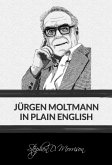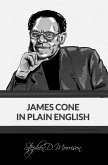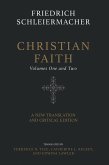The fourth book in Stephen D. Morrison's "Plain English Series" aims to reassess Schleiermacher's complicated legacy. He argues that Schleiermacher is far too significant to ignore and it will only be to our detriment if we allow poor caricatures of his work to persist. Morrison also adds his voice to the growing consensus among scholars that an essential harmony can exist between Barth and Schleiermacher.
Drawing from a multitude of primary and secondary sources, Morrison focuses on coming to a new understanding of Schleiermacher's theological masterpiece, Christian Faith. With clarity and accessibility, Morrison draws you in to reconsider Schleiermacher's legacy. Perhaps Schleiermacher is not the "villain" of modern theology after all.
Dieser Download kann aus rechtlichen Gründen nur mit Rechnungsadresse in A, B, CY, CZ, D, DK, EW, E, FIN, F, GR, H, IRL, I, LT, L, LR, M, NL, PL, P, R, S, SLO, SK ausgeliefert werden.









